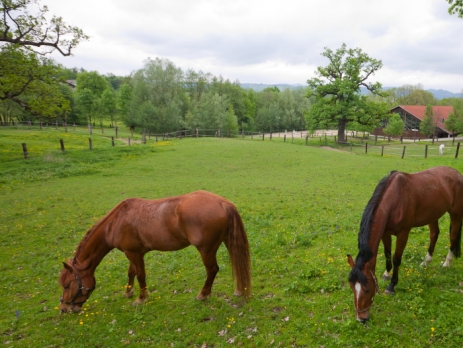Lease or licence?
The starting point is to work out whether a lease or a licence has been granted. The famous case of Street v Mountford made it clear that it does not matter what the document is called; instead, what matters is what rights have been granted to the occupier. If the occupier has exclusive possession of the land (for a discernible term, and subject to the payment of rent) then they likely have a lease.
What type of lease?
This is crucial, as knowing what type of lease an occupier has means the landowner will know what statutory protection they do or do not have, and therefore how they can be evicted:
- If there is no business use whatsoever – such as keeping the horse for purely private or recreational purposes – then it is likely a common law tenancy. This can be terminated by serving a Notice to Quit.
- If there is business use – such as a riding stables or livery yard or similar – then it is likely a business tenancy protected by the Landlord and Tenant Act 1954. This offers security of tenure for the tenant, and can only be terminated by giving between 6 and 12 months’ notice, citing certain limited grounds for termination.
- If there is an agricultural business use – such as commercial grazing, working horses, or farmed horses – then it is likely a Farm Business Tenancy (“FBT”) protected by the Agricultural Tenancies Act 1995, even if there is also non-agricultural use. A FBT does not grant security of tenure for the tenant, but they can be tricky to terminate, as the method of doing so depends on their length and origin.
- There are also other possible arrangements – known as ‘profits of pasture’ and ‘agistment’ (type of grazing arrangements) – which are far rarer. These also do not grant any interest in the land.
There is an old adage that ‘a stitch in time saves nine’. The same principle applies to legal agreements. Do not try to scrimp and save at the outset – because you will likely pay far more down the line if the matter comes to litigation, in time and stress as well as money. Instruct a solicitor to draft a clear, written agreement before you allow anybody onto the land (or before you begin occupying the land), making it clear what rights are being granted and how the occupation can be terminated. If you are attempting to grant a licence, ensure the occupier does not have exclusive possession of the land, and if you are allowing the occupier to use the land for certain limited purposes, do not let them get away with other uses, as that can change the nature of their legal rights, causing complications and delays (and expense) down the line.
We have frequently advised clients on leases and licences, so do not hesitate to contact us should you need any assistance.


